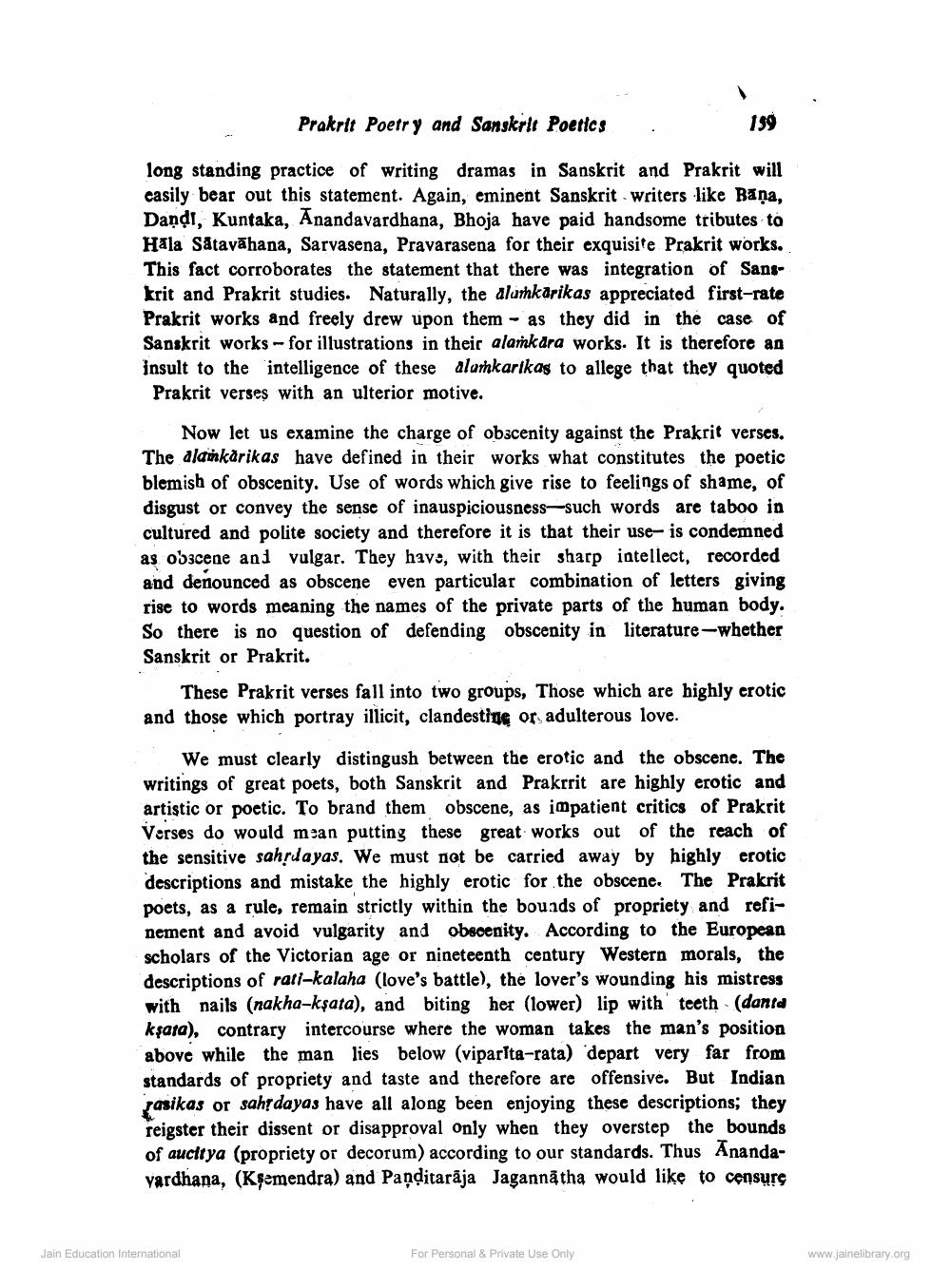________________
Prakrit Poetry and Sanskrit Poetics
.
199
long standing practice of writing dramas in Sanskrit and Prakrit will casily bear out this statement. Again, eminent Sanskrit writers like Bāņa, Dandi, Kuntaka, Anandavardhana, Bhoja have paid handsome tributes to Hala Satavāhana, Sarvasena, Pravarasena for their exquisite Prakrit works. This fact corroborates the statement that there was integration of SansErit and Prakrit studies. Naturally, the alumkarikas appreciated first-rate Prakrit works and freely drew upon them - as they did in the case of Sanskrit works - for illustrations in their alamk dra works. It is therefore an insult to the intelligence of these alamkarikas to allege that they quoted Prakrit verses with an ulterior motive.
Now let us examine the charge of obscenity against the Prakrit verses. The alaikärikas have defined in their works what constitutes the poetic blemish of obscenity. Use of words which give rise to feelings of shame, of disgust or convey the sense of inauspiciousness-such words are taboo in cultured and polite society and therefore it is that their use is condemned as obscene ani vulgar. They have, with their sharp intellect, recorded and denounced as obscene even particular combination of letters giving rise to words meaning the names of the private parts of the human body. So there is no question of defending obscenity in literature --whether Sanskrit or Prakrit.
These Prakrit verses fall into two groups, Those which are highly erotic and those which portray illicit, clandesting or adulterous love.
We must clearly distingush between the erotic and the obscene. The writings of great poets, both Sanskrit and Prakrrit are highly erotic and artistic or poetic. To brand them obscene, as impatient critics of Prakrit Verses do would mean putting these great works out of the reach of the sensitive sahrdayas. We must not be carried away by highly erotic descriptions and mistake the highly erotic for the obscene. The Prakrit poets, as a rule, remain strictly within the bounds of propriety and refinement and avoid vulgarity and obscenity. According to the European scholars of the Victorian age or nineteenth century Western morals, the descriptions of rati-kalaha (love's battle), the lover's wounding his mistress with nails (nakha-kşata), and biting her (lower) lip with teeth (dania kşara), contrary intercourse where the woman takes the man's position above while the man lies below (viparlta-rata) depart very far from standards of propriety and taste and therefore are offensive. But Indian pasikas or sahrdayas have all along been enjoying these descriptions; they reigster their dissent or disapproval only when they overstep the bounds of aucitya (propriety or decorum) according to our standards. Thus Anandavardhana, (Kşemendra) and Paņditarāja Jagannatha would like to censure
Jain Education International
For Personal & Private Use Only
www.jainelibrary.org




